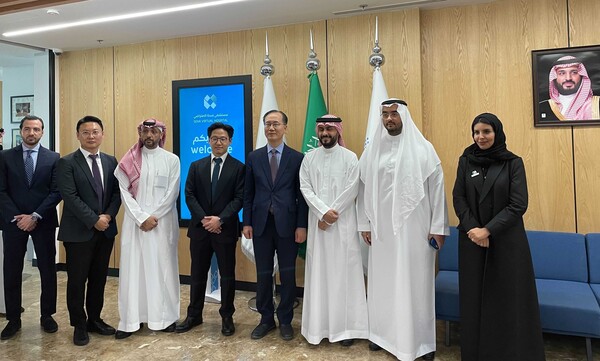Lunit said it has become the first Korean company to participate in the Saudi Vision 2030 Healthcare Sandbox.

The Healthcare Sandbox, initiated by the Saudi Arabian Ministry of Health in line with the Saudi Vision 2030 strategy, is designed to facilitate the digital transformation of the country's healthcare industry.
Partners are offered a business-friendly environment that encourages active collaboration with medical institutions nationwide, attracts investment, and opens avenues for business expansion.
As part of the Sandbox, Lunit will sign a Memorandum of Understanding (MoU) with Seha Virtual Hospital (SVH) on Sunday.
SVH, the world's largest virtual hospital in terms of number of affiliated hospitals, is a key part of Saudi's healthcare transformation initiative, the cornerstone of the Saudi Vision 2030 strategy. SVH provides medical services to approximately 480,000 patients annually, supporting 150 hospitals nationwide.
The collaboration aims to strengthen the partnership and contribute significantly to the country's national cancer screening program.
Specifically, Lunit will provide SVH and its network of approximately 150 connected hospitals with the Lunit INSIGHT suite, an AI-powered solution for timely cancer detection. The initial deployment will start at King Saud Medical City in Riyadh, and Al Mashaier Hospitals (a group of eight hospitals) in Makkah.
In addition to enabling early-stage cancer screening, the collaboration will also focus on co-developing an AI-based CT analyzer to support more precise cancer and tuberculosis diagnosis.
Also, the partnership will actively work to secure high-quality healthcare data, contributing to the ongoing enhancement of Lunit's AI models.
"Our expanded partnership with the Ministry of Health and Seha Virtual Hospital represents a significant step forward in improving the cancer care efforts in Saudi Arabia," Lunit CEO Suh Beom-seok said. "By delivering our AI-powered solution, we aim to enable early cancer detection, a pivotal factor in enhancing patient outcomes."
Given that Saudi Arabia boasts the largest medical market in the Gulf Cooperation Council, this initiative underscores a meaningful impact on healthcare in the Middle East, Suh added.
According to Business Markets Insights, a market research firm, the medical imaging informatics market in the Middle East and Africa (MEA) was valued at $1.6 billion in 2021 and is projected to exceed $2 billion by 2028, with an expected annual average growth of 3.5 percent.
Related articles
- [ESMO 2023] Lunit, Medpacto, TiumBio present research results at ESMO 2023
- Leading Korean AI medical imaging companies showcase key products at KCR 2023
- Lunit, UK hospital to launch prospective AI study in symptomatic breast clinic setting
- Lunit AI finds its place in European breast cancer screening system
- Phase 3 trial results for NSCLC using Lunit Scope published in JCO
- Lunit agrees with MD Anderson on AI-based research of immunotherapies’ efficacy
- Lunit to provide AI-powered chest screening solution to the Philippines
- Lunit, CancerX leverage AI-powered solutions to reduce financial toxicity for cancer

